SUMMARY
This is AI generated summarization, which may have errors. For context, always refer to the full article.
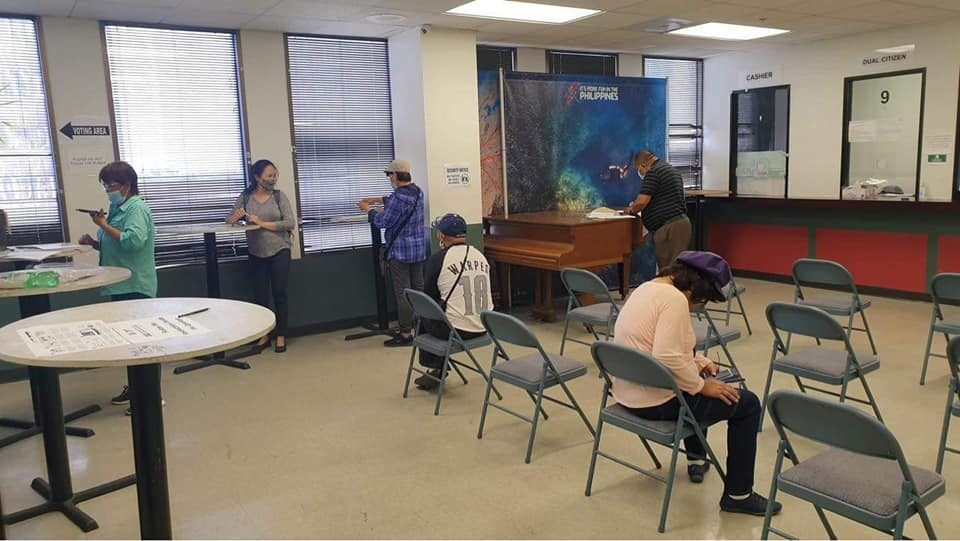
MANILA, Philippines – Hundreds of thousands of overseas Filipinos cast their votes in the high-stakes 2022 elections in a month-long period, from April 10 to May 9. Voting, however, was not an easy process for some.
The Commission on Elections (Comelec) stopped transmitting results to its transparency server on Friday, May 13, with only 61.51% of overseas precincts reporting. The rest of the canvassing would be done manually.
While the Comelec has yet to release a full turnout of overseas voters this year, at least 471,678 Filipinos abroad were able to vote, based on the sum of presidential votes in the partial and unofficial results.
This figure translates into an incomplete turnout of around 27.8% of the more than 1.6 million Filipinos registered.
Behind the numbers, numerous incidents of disenfranchisement and alleged irregularities surfaced before and during the month-long voting period.
Here are some of them:
Difficulty registering
Not all Filipinos abroad who wanted to vote made it in time to register by the October 14, 2021, deadline.
Filipinos in different countries reported not being able to register for various reasons: COVID-19 lockdown, the limited number of posts where voters could register, the priority to stay safe and healthy amid a global pandemic, and the fact that not all employers would give them a day off to register or vote.
The deadline to register was originally on September 30, just like in the Philippines. When the Philippine government extended registration after public clamor, overseas registration closed two weeks earlier than the Philippines’ new deadline on October 30. This was decided despite the law granting the extension not making a distinction between local and overseas registration.
Then-Comelec spokesperson James Jimenez explained that overseas registration needed to be closed earlier because of the “unique circumstances” of overseas voting. The commission had to stick to its “much tighter timetable” since Filipinos abroad would start voting a month earlier than those in the Philippines.
Slashed budget
Months before the election began, nongovernment organization Center for Migrant Advocacy raised possible issues in the conduct of overseas voting due to limited funds.
The government granted a P111.9-million budget for the overseas elections, which was “half of what was given in 2007,” Director Bea Wee-Lozada of the Comelec Office for Overseas Voting (OFOV) said in a House hearing on February 2.
“To be honest po, this is actually not sufficient because, based on postage fees alone, back in 2019, our data shows that we already incurred almost P70 million for postage to send out ballots to overseas Filipinos. This does not include honoraria for our overseas electoral boards, deployment costs, and other training and communications expenses to have our voter information campaigns,” Lozada said in the hearing.
When the voting period began, a social media post claimed that a foreign service post in the United States sent out election packets containing envelopes with insufficient postage, but officials denied this and assured voters there was sufficient postage for the ballots sent out.
Meanwhile, watchdog Kontra Daya USA reported receiving at least three reports of voters who had insufficient postage for their ballots. One reportedly paid an extra 20 cents to the United States Postal Service (USPS) to mail their ballot.
The watchdog reached out to the consulate in San Francisco regarding the issue. The consulate, in an email that Kontra Daya USA showed to Rappler, said that “any deficiency in the amount of postage shall be paid for by the Consulate in accordance with USPS guidelines.”
Some areas with postal voting ended up having the option to pick up and drop off ballots at the posts, or fill them up onsite. Some of these areas included the US, Canada, Italy, Austria, Belgium, Greece, Denmark, and Thailand.
This remedy was made available as the closing of the voting period came near, especially for the voters who had not received their ballots yet.
Delayed voting for some posts
Voters in areas with postal voting received their ballots later than they did in previous elections.
Nerissa Allegretti of 1Sambayan USA said that in previous elections ballots were mailed as early as March. In an April 5 media briefing, days away from the start of the election, she said that she and members of her community had not received them yet.
On April 10, Comelec announced that voters under the jurisdiction of the Philippine posts in Wellington, Islamabad, Dili, Milan, and New York would start voting past the first day “due to logistical difficulties encountered in the shipment of election materials.”
In a letter to the Philippine embassy in Washington DC dated April 12, the US Filipinos for Good Governance raised the issue of a “one-week delay” in the mailing of 35,511 ballots for Filipino voters in the embassy’s jurisdiction.
“According to verbal reports, many people even had to expedite and pay more [to the USPS] because they received their ballots late,” Kontra Daya USA told Rappler.
Voters in Northern Italy also received their ballots late due to shipping delays, while voting in Shanghai, China’s biggest city, had to be postponed due to a COVID-19 surge.
Allegations of pre-shading
Reports of alleged pre-shaded ballots surfaced in vote-rich Dubai and Singapore. While the consulate in Dubai denied any reports of pre-shaded ballots, the embassy in Singapore admitted to one incident of a spoiled ballot handed to a voter.
In Singapore, voter Cheryl Abundo posted on social media that her ballot came to her pre-shaded. When she asked to have it replaced, she was told by election officials that it was a spoiled ballot from the day before.
The embassy in Singapore confirmed that the voter was inadvertently given a spoiled ballot, and said that it was an isolated incident. It denied other reports that more pre-shaded ballots were given to voters.
Double ballots
At least three voters in Sweden received two ballots in the mail each, the Philippine embassy in Stockholm confirmed.
One of the voters posted on social media about his experience – the ballots came one day after the other, and the second one had his name misspelled. The second packet was also missing an additional envelope from the Comelec that the first packet had.
The embassy said “that there may have been an element of human error on its part” while doing post-delivery checks of the ballots before sending them out to the voters.
Ballots listing wrong countries
When Filipino voter Wilhelmina Quarmyne received her ballot from the Philippine honorary consulate in Accra, Ghana, it listed her as a resident in the Central African Republic (CAR), even if she was registered and based in Ghana. This caused worries of her ballot being invalidated if she sent it in, due to the inconsistent data.
Quarmyne reached out to Rappler on April 25 about the confusion since it had not been clarified by authorities at the time. Rappler cross-checked her name with the Certified List of Overseas Voters, and found she was not listed in Ghana nor the Central African Republic – but among voters in Nigeria.
In the Comelec’s voter verifier, Rappler found that Quarmyne had an “active” status as a voter in Nigeria. The voter verifier yielded a “no record found” result for Quarmyne in Ghana and the CAR.
To add to the confusion, voters registered in Nigeria were meant to undergo a personal mode of voting, where they would appear personally at the embassy in Abuja to cast their votes. All other African countries under the jurisdiction of the Philippine embassy in Abuja – which included Ghana and CAR – should have had their ballots mailed to them. This means that if Quarmyne was really registered under Nigeria, she should not have been issued a postal ballot.
It appeared that Quarmyne’s concern was not an isolated incident since, on April 27, the consulate in Accra issued a clarification to voters with similar concerns: “Due to the shortage of ballots specified per country, and country-to-country changes of address, the Comelec have (sic) authorized to use of any available ballots under the jurisdiction of [the Philippine embassy in Abuja].”
“We hope that this statement eases the doubt and worries of our fellow Filipino voters,” the consulate said.
Spread of unreliable, false information
On the first day of overseas voting, a vlogger who identified as chairman of the BBM-Sara Uniteam Supporters in Hong Kong posted an “exit poll” showing that former senator and the dictator’s son Ferdinand Marcos Jr. dominated the polls in Hong Kong as of that day.
The Comelec advised against the reliability of exit polls if they did not come from credible survey firms.
“As a general rule, unless the entity that came out with the exit poll is a known and reputable survey firm, it is not reliable. It is easy to create official-looking forms or graphics that seem legitimate on social media,” then-Comelec spokesman Jimenez said on Twitter on April 11.
Republic Act 9006 or the Fair Election Act states that the result of exit polls may only be announced after voting ends on election day, May 9.
The Comelec also confirmed that a viral photo of a voter’s ballot in New Zealand showing Vice President Leni Robredo’s name missing from the presidential candidates was “deliberately edited.”
The Comelec OFOV said it was in close coordination with the foreign affairs department and the embassy in New Zealand to identify those responsible for editing the photo and spreading it on social media. – Rappler.com
Add a comment
How does this make you feel?
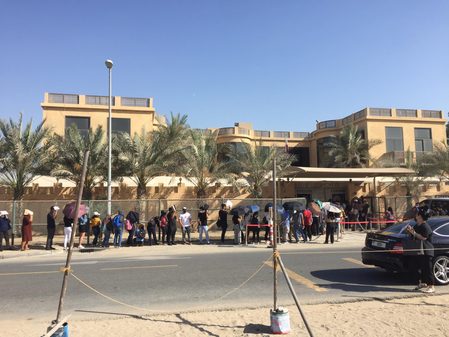
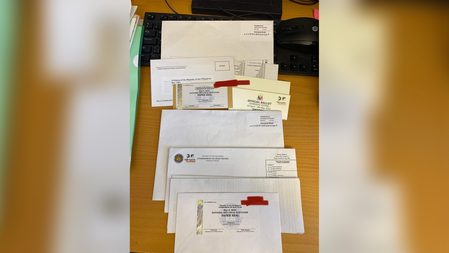


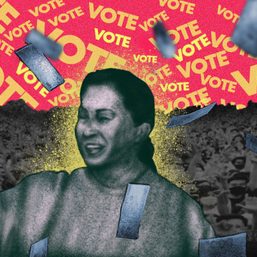
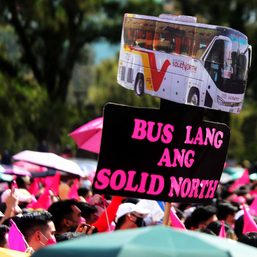





![[New School] Tama na kayo](https://www.rappler.com/tachyon/2024/02/new-school-tama-na-kayo-feb-6-2024.jpg?resize=257%2C257&crop=290px%2C0px%2C720px%2C720px)





There are no comments yet. Add your comment to start the conversation.